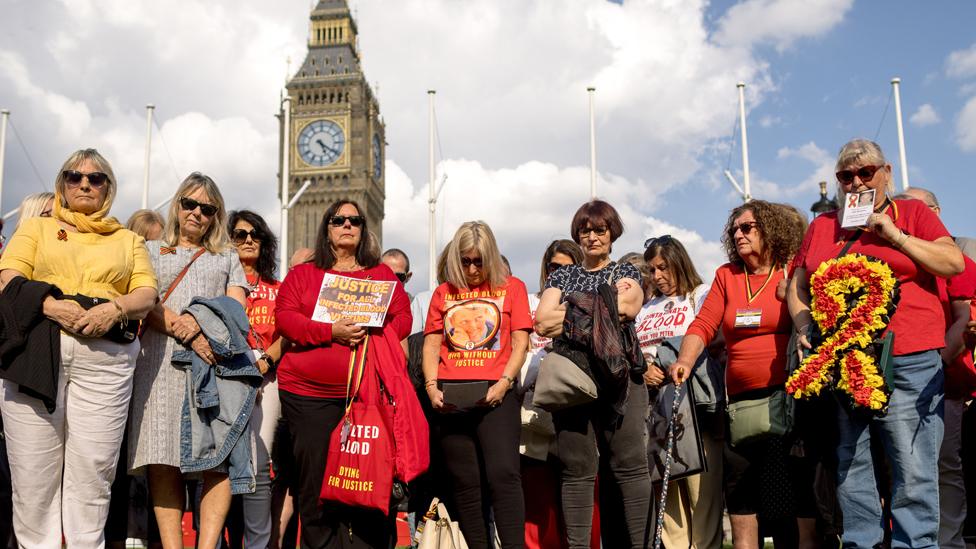Swinney apologises to victims of blood scandal
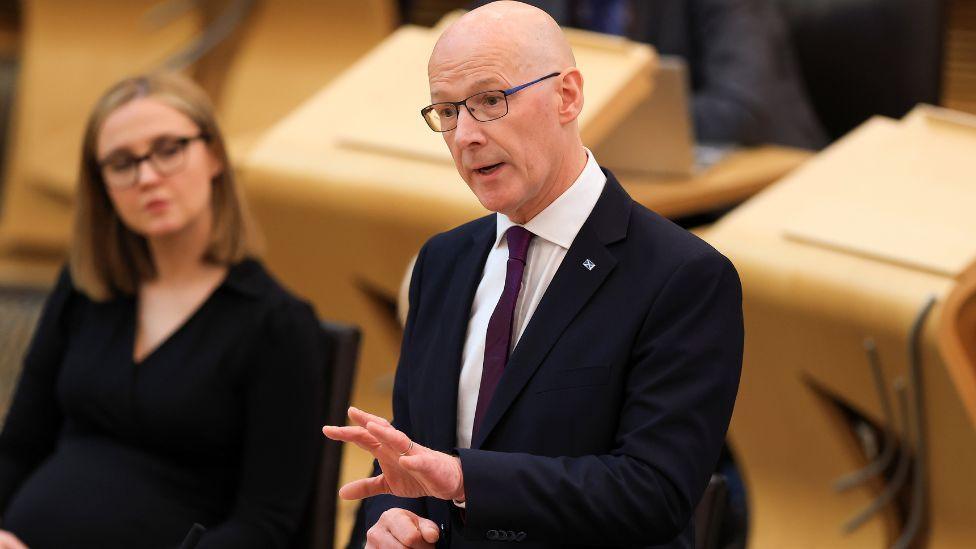
First Minister John Swinney made a statement to MSPs at Holyrood
- Published
First Minister John Swinney has apologised to all those in Scotland affected by the infected blood scandal.
The SNP leader made a statement to parliament after a UK-wide public inquiry found authorities had exposed victims to unacceptable risks and covered up the NHS's biggest treatment disaster.
He said the government would learn the lessons of the report and take action to ensure "such a tragedy can never happen again".
Mr Swinney vowed to work constructively with the UK government on compensation.
It is estimated that about 3,000 people in Scotland were given infected blood in the 1970s and 1980s.
Many had received blood transfusions on the NHS, while others were being treated for haemophilia.
Hundreds have since died.
Mr Swinney said Scottish victims and their families had faced "decades of unnecessary heartache and pain".
He told MSPs: "The report states that governments and the health service failed both those with bleeding disorders and those who were transfused."
The first minister added: "On behalf of the Scottish government and as first minister of Scotland I apologise unreservedly to everyone who has been affected in any way by these events."
Compensation
The UK government has reportedly earmarked £10bn for a compensation scheme.
Earlier, it was announced the Infected Blood Compensation Authority - an arms-length body - will administer compensation for victims across the country.
The UK government has already funded interim pay-outs of £100,000 each to survivors and bereaved partners in Scotland.
An estimated 600 people received the payments, administered by the Scottish government and NHS National Services Scotland.
The UK government said it expected the first payments from the new compensation scheme would be made before the end of 2024.
Further interim payments of £210,000 will be made within 90 days for those who were infected, with £100,000 to be paid to estates of victims who have died.
Mr Swinney urged Westminster to implement the Victim and Prisoners Bill "as quickly as possible" to allow victims to access compensation.
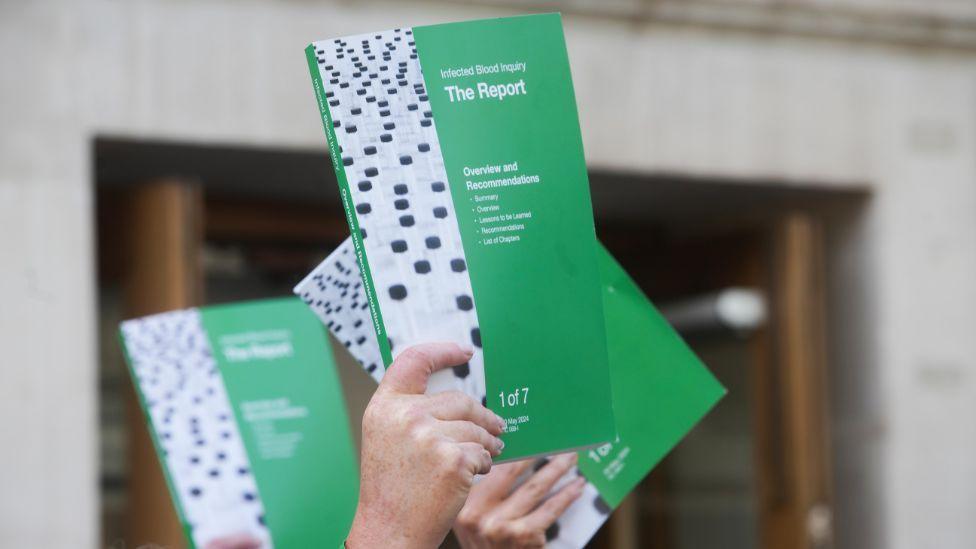
The final report of the UK Infected Blood Inquiry was published on Monday
The first minister said the compensation scheme was long overdue and that he hoped Sir Brian Langstaff's final report would be a “step forward in the journey towards a semblance of justice".
He told Holyrood: “I will do everything in my power to ensure we learn the lessons from this report from the infected blood scandal and take all necessary steps so that no-one else had to endure the heartbreak and the suffering that so many families have had to face.”
Mr Swinney added that lessons had already been learned, telling MSPs "extremely high standards of blood safety" were now in place.
He urged anyone that can do so to donate blood as it “remains essential for thousands of patients”.
Scottish Tory leader Douglas Ross said the inquiry delivered “absolute vindication” for victims, describing the scandal as a “stain on our nation”.
“This was a devastating and appalling by the British state,” he told MSPs.
Scottish Labour leader Anas Sarwar also issued an apology.
“We as a collective are truly sorry for the pain that people have suffered and for the failures of politicians, clinicians and the state to keep them safe over decades,” he said.
- Published20 May 2024
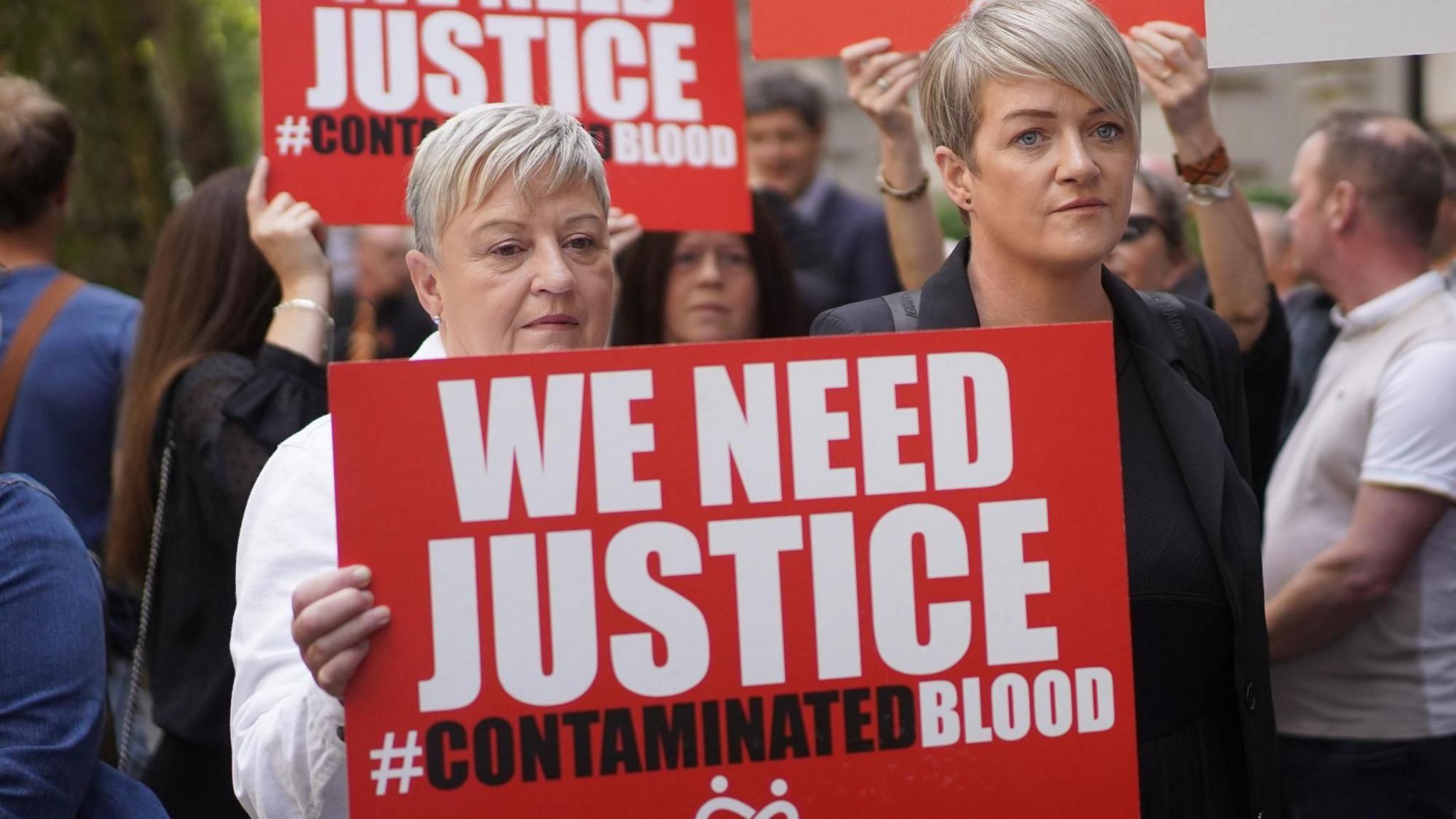
- Published21 May 2024
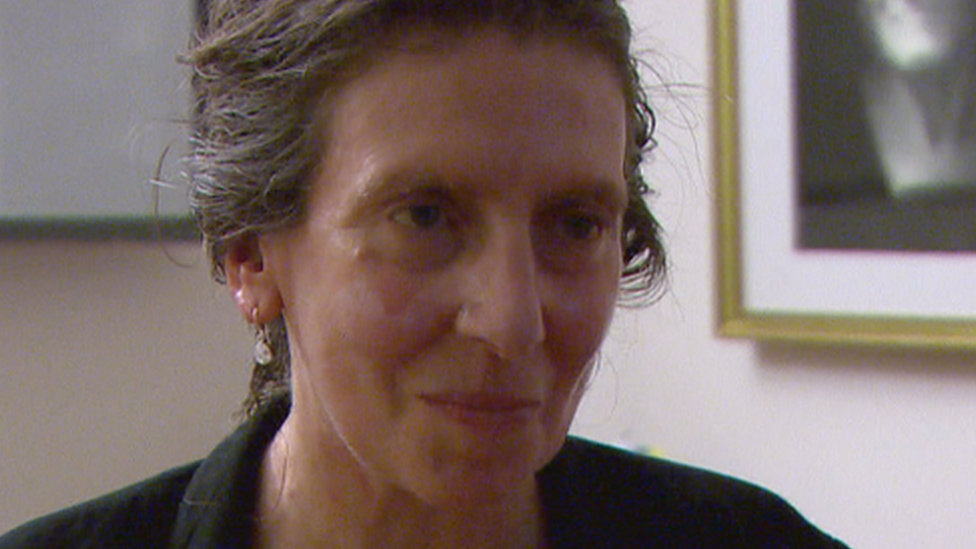
- Published21 May 2024
